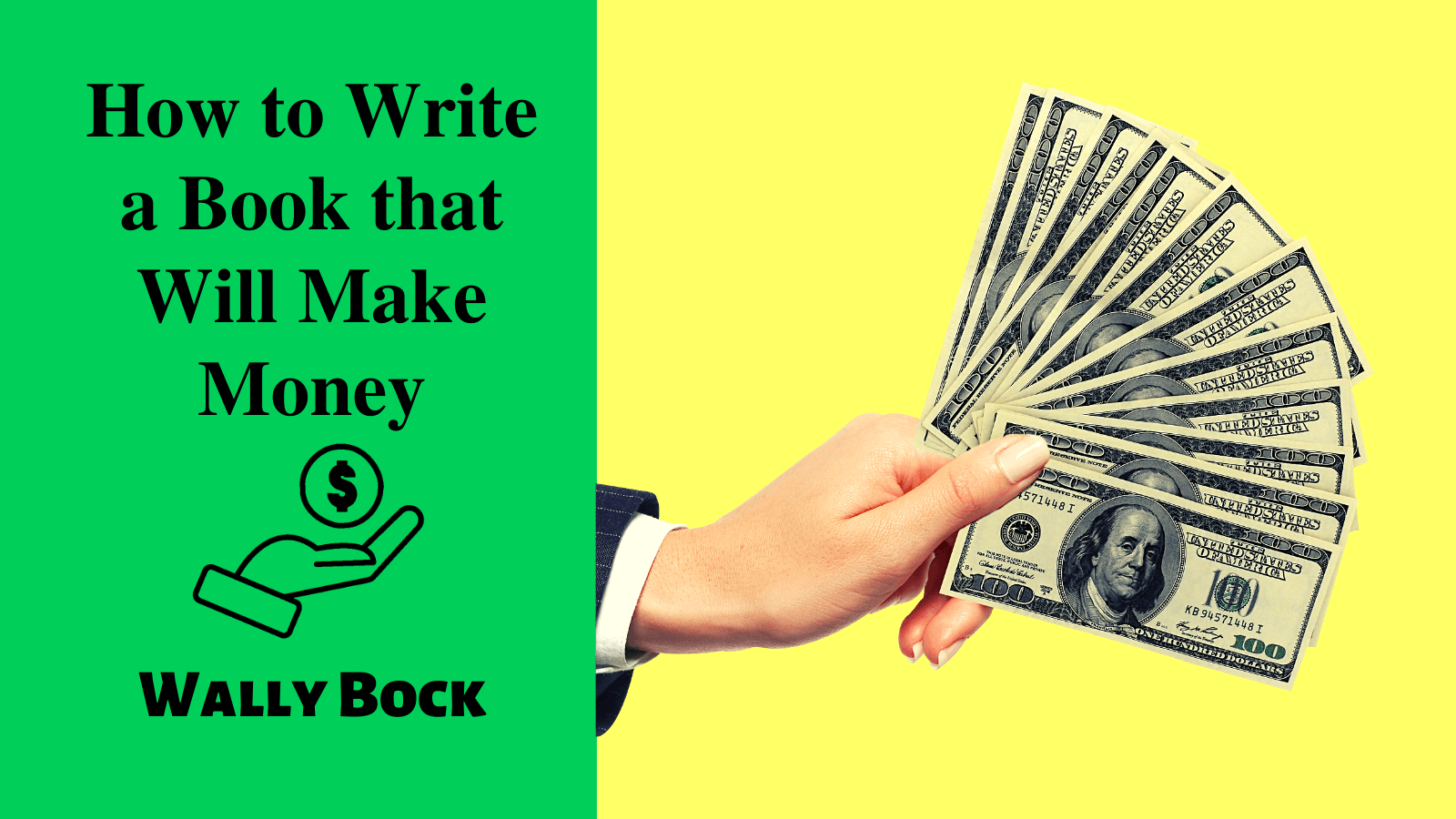 According to Jane Friedman’s Electric Speed newsletter, 90 percent of books didn’t sell more than 5,000 copies during 2020. She says that’s true of most years, not just 2020.
According to Jane Friedman’s Electric Speed newsletter, 90 percent of books didn’t sell more than 5,000 copies during 2020. She says that’s true of most years, not just 2020.
Sure, making those bestseller lists seems like a worthy goal. But there are lots of books, like those written by several of my clients, that make money for the author without making a bestseller list.
If your goal is to write a “bestseller,” good luck. You might hit it. And you can probably work the system a little bit and get an Amazon badge, but the big question is “How will your book generate revenue for you for a long time?”
Pick A Topic That Will Work for A While
Many topics come and go quickly. Write a book today about COVID or a new tax law, and it probably won’t seem so fresh and helpful in three or four or five years. The same is true for books that catch the wave of the management fad of the moment.
Look for big problems that will always be with us. A big problem is one that’s important to a lot of people. If you write about a big problem that lots of people have and that won’t go away, your book has the potential to make you money for decades.
Niche, Sweet Niche
Forty years ago, Dan Poynter realized that the best place to sell a specialty book was not regular bookstore. Dan’s first books were about parachute rigging. Regular bookstores would rarely put even a single copy on their shelves. Dan sold thousands of books through skydiving catalogs, skydiving convention bookstores, and mail order.
Later, he wrote the classic Self-Publishing Manual to tell the rest of us how to do it. People who are passionate about a pursuit or a trade or an industry tend to get together. They also tend to love books that are specifically for them.
If you know a niche well, write a book for people like you. Your book may not even be on Amazon. It won’t appear on any bestseller lists, but it can provide revenue for a long time. One of my most successful books was published in 1995 and sold well for a little over 20 years.
Write The Best Book You Can
This ought to go without saying, but too many people I’ve talked to “just want to have a book.” Remember that your book represents you to people who’ve never met you and it will do so for decades.
Give your book a title with a promise. The promise of the title should tell prospective readers what they’ll get from your book.
Write conversationally. Write the way you’d talk to a friend. Write to inform and explain, not to impress. Especially, not to impress your old English teacher.
Good books don’t come easy. Expect many revisions, usually at least three. Use beta readers to get feedback early. Invest in a professional editor to clean up what you thought was nearly perfect.
Include aids that readers like. Readers of business books like end-of-chapter summaries, bulleted lists, and pull-quotes.
Build An Empire Around Your Book
I owe this insight to Gordon Burgett. For years, Gordon has been preaching the idea of creating an information empire based on what you know.
Your book might be the center of your empire, but your empire should include lots of media. Besides the book, there are speaking and training. Leverage your training by teaching others how to do it. Create webinars, workbooks, field books, and anything else you can think of. Every item in your empire should promote other items and you should offer products at several price points.
Create a support site that ties your readers to you. Offer them forms and things that don’t work well in a book and which let you capture their email addresses.
Promote It ‘Till You Puke
Promotion consists of the things you do to help people hear about you. It starts with developing what some call a platform, others call a tribe, and I call followers. They’re the people who are interested in you and what you have to say. They’ll subscribe to your newsletter and sign up for your webinars. Some of them will buy your book. They’ll tell others about what a great book it is. You can do this yourself or get professional help from someone like Becky Robinson at Weaving Influence.
Pay attention to Amazon categories. They can help you get found. When you think social media, think saturation. People must hear about you before they want to learn what you do. Then they want to know more about you before they think about buying your book. Social media is a great place to build name recognition.
Don’t just promote your book when you first publish it. Every three to six months, conduct a mini promotion so more people hear about the book and how good it is.
You Might Get Lucky
Sometimes, the stars line up. But it’s not anything you can plan for.
When Suzi McAlpine was first thinking about and researching her book on burnout, she knew it was an important issue. She couldn’t foresee that, at the very time her book was coming to publication, public interest in burnout was reaching flood stage. That improved sales and her impact, but there’s another lesson here.
Fortune boosts good books and exposes bad ones. Beyond Burnout is an excellent book, and so it benefited from the full power of luck.
Takeaways
The odds of making a bestseller list are vanishingly small.
Concentrate on writing a book that will make you money.
Write about a big problem that lots of people have.
Don’t write about something with an expiration date.
Niche books sell well for years.
Write the best book you can.
Build an empire around your book.
Promote your book ‘till you puke. Then do it again.
You might get lucky but don’t count on it.
